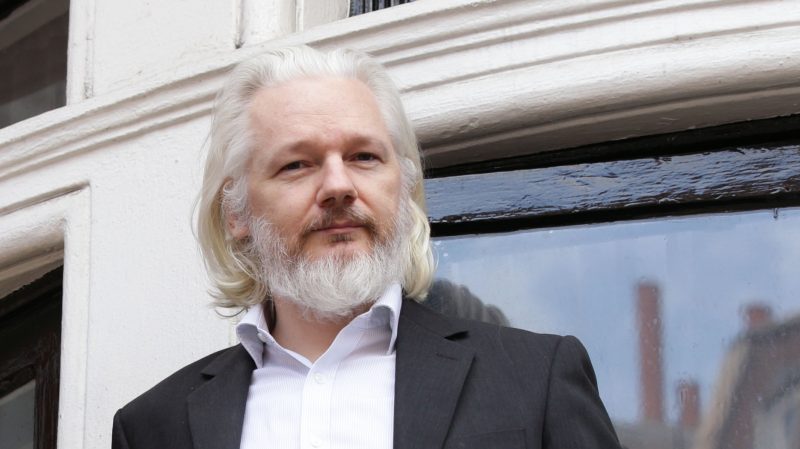
A Swedish prosecutor announced Tuesday morning that her office was dropping its preliminary investigation into allegations against WikiLeaks founder Julian Assange.
It is the third time that Sweden has been compelled to shelve the investigation for lack of any evidence to support it, and confirms that the claims of “rape” or “sexual assault” by Assange are a politically motivated fraud.
The Swedish investigation has always been a stalking horse for the US government, which has sought to extradite Assange, either from Sweden or Britain, where he is currently jailed, in order to lock him up forever or execute him on charges under the 1917 Espionage Act, because of WikiLeaks’ publication of evidence of US war crimes in Iraq and Afghanistan.
Assange was illegally dragged out of the Ecuadorian embassy in London last April, after spending seven years inside, having been granted political asylum.
At the time, the Swedish deputy director of public prosecutions, Eva-Marie Persson, reopened the investigation into claims—initiated by the police rather than the women involved—that Assange had been guilty of sexual assault in 2010.
Persson made the announcement that the investigation would be ended once it became clear that the British authorities would keep Assange locked up in Belmarsh Prison indefinitely, pending a decision on the US demand for his extradition. A court hearing is currently set for next February.
In 2013, when the Swedish authorities indicated they would drop the investigation, the British government interceded and pressured them not to do so, since the European Arrest Warrant for Assange—issued for questioning only, not laying any charges—had been the basis for seeking his detention.
Now, however, neither the Trump administration in the United States nor the Johnson government in Britain have any further need for the Swedish investigation.
It had been useful in smearing Assange as a rapist and undermining the widespread public support for his freedom, but now could cut across his transfer from London to Washington, where he faces up to 175 years in prison on 18 counts, most involving violation of the Espionage Act.
Some political figures in Britain, including Labour Party leader Jeremy Corbyn, have suggested that Assange should be sent to Sweden rather than to the United States.
In this way, they seek to avoid any direct opposition to American imperialism, while joining in the smear tactics against Assange and appealing to supporters of the reactionary #MeToo campaign.
The Obama administration revived the use of the Espionage Act, bringing numerous charges against leakers under the 1917 law, and prosecuting and sending Chelsea Manning to prison for supplying WikiLeaks with documents on US atrocities in Iraq and Afghanistan, secret diplomatic cables to the State Department, and records of torture and mistreatment of prisoners at Guantanamo Bay.
The Trump administration has escalated the attack on First Amendment rights.
Assange is the first publisher ever charged under the Espionage Act, and the case sets an ominous precedent for any newspaper, television network or web site which dares to make public evidence of American atrocities or anti-democratic conspiracies overseas.
Manning has been sent back to prison on contempt of court charges because she refuses to give perjured testimony against Assange before a secret grand jury.
WikiLeaks publisher Kristinn Hrafnsson issued a statement calling on supporters of Assange to redouble their efforts to win his freedom in the wake of Tuesday’s developments:
“Sweden has dropped its preliminary investigation into Mr Assange for the third time, after reopening it without any new evidence or information. Let us now focus on the threat Mr Assange has been warning about for years: the belligerent prosecution of the United States and the threat it poses to the First Amendment.”
Hrafnsson cited the finding by the UN rapporteur against torture, Nils Melzer, that the Swedish investigation had been “rapidly politicised” and deprived Assange of any chance of a fair hearing. WikiLeaks called for a further investigation in Sweden into “how the justice system failed to withstand the political and media pressure.”
By Patrick Martin
This article was originally published by “WSWS”
The 21st Century
